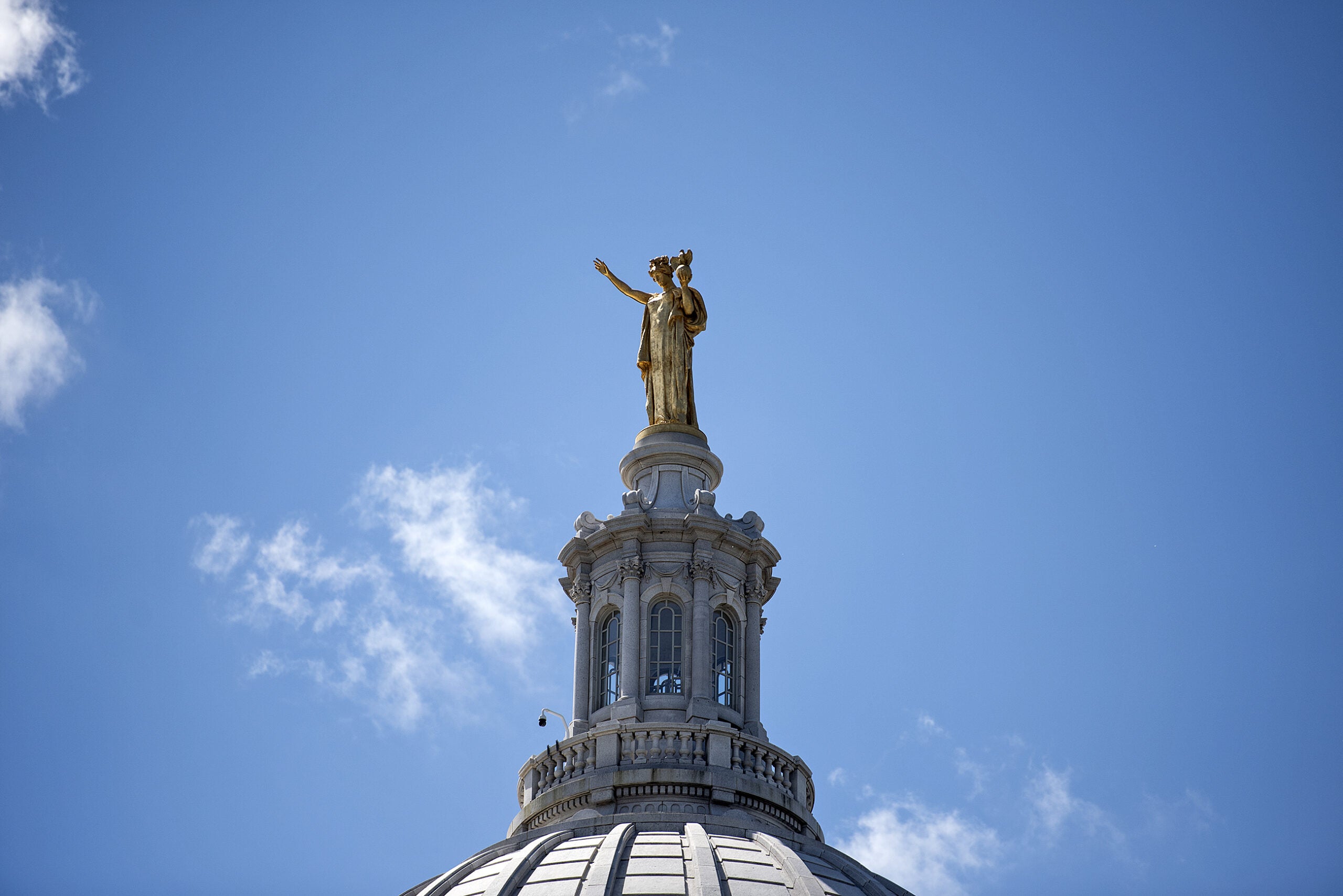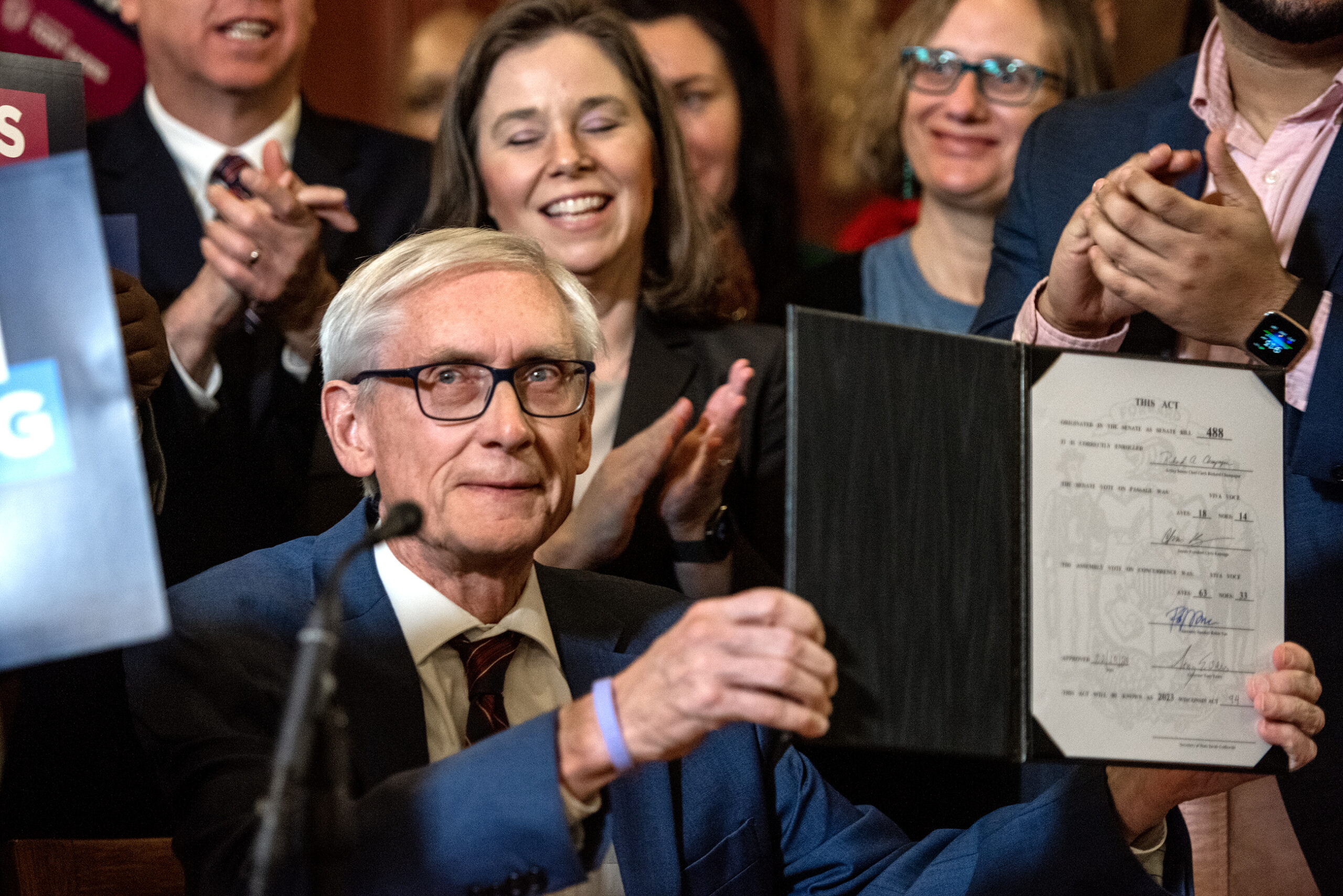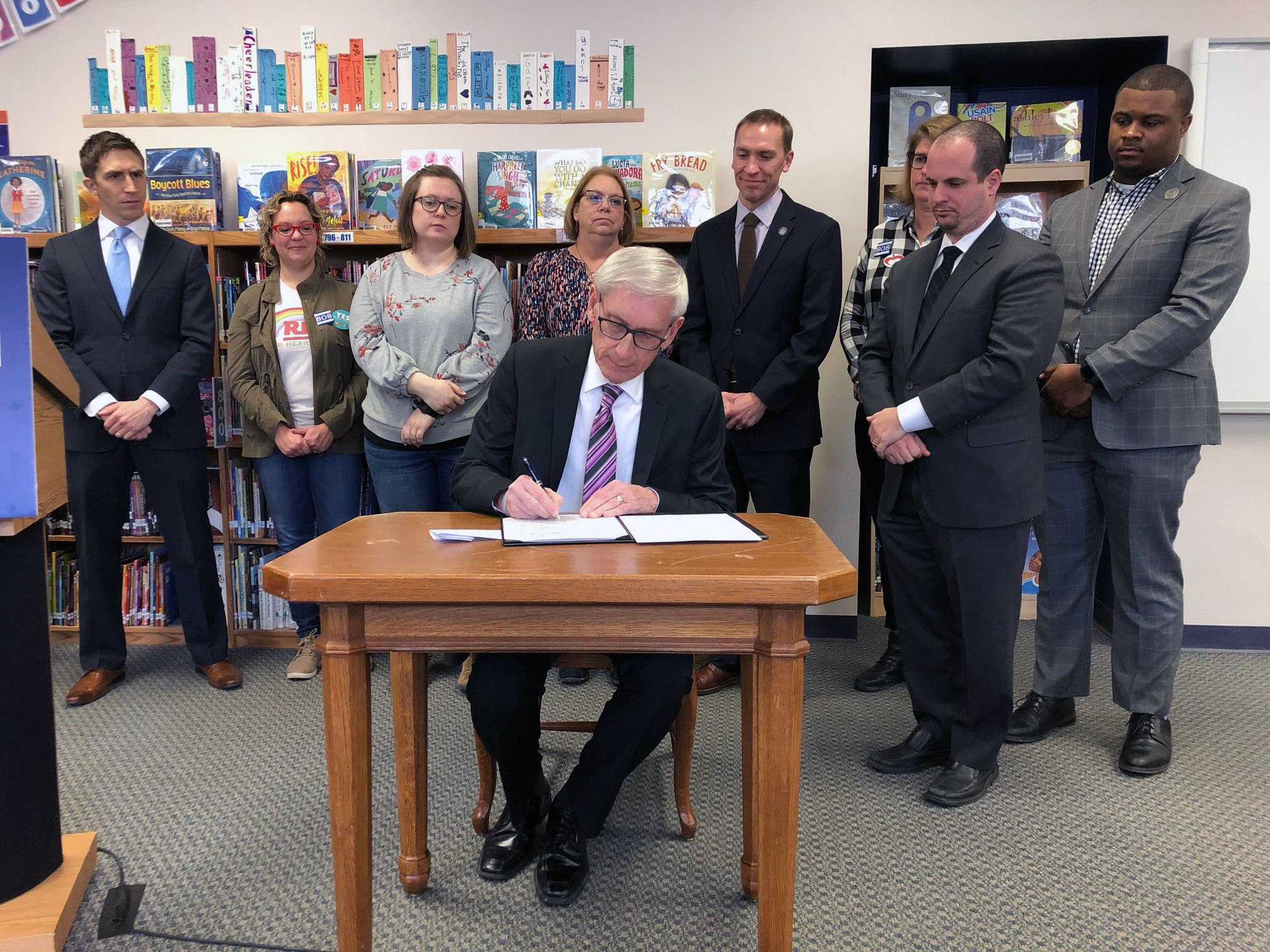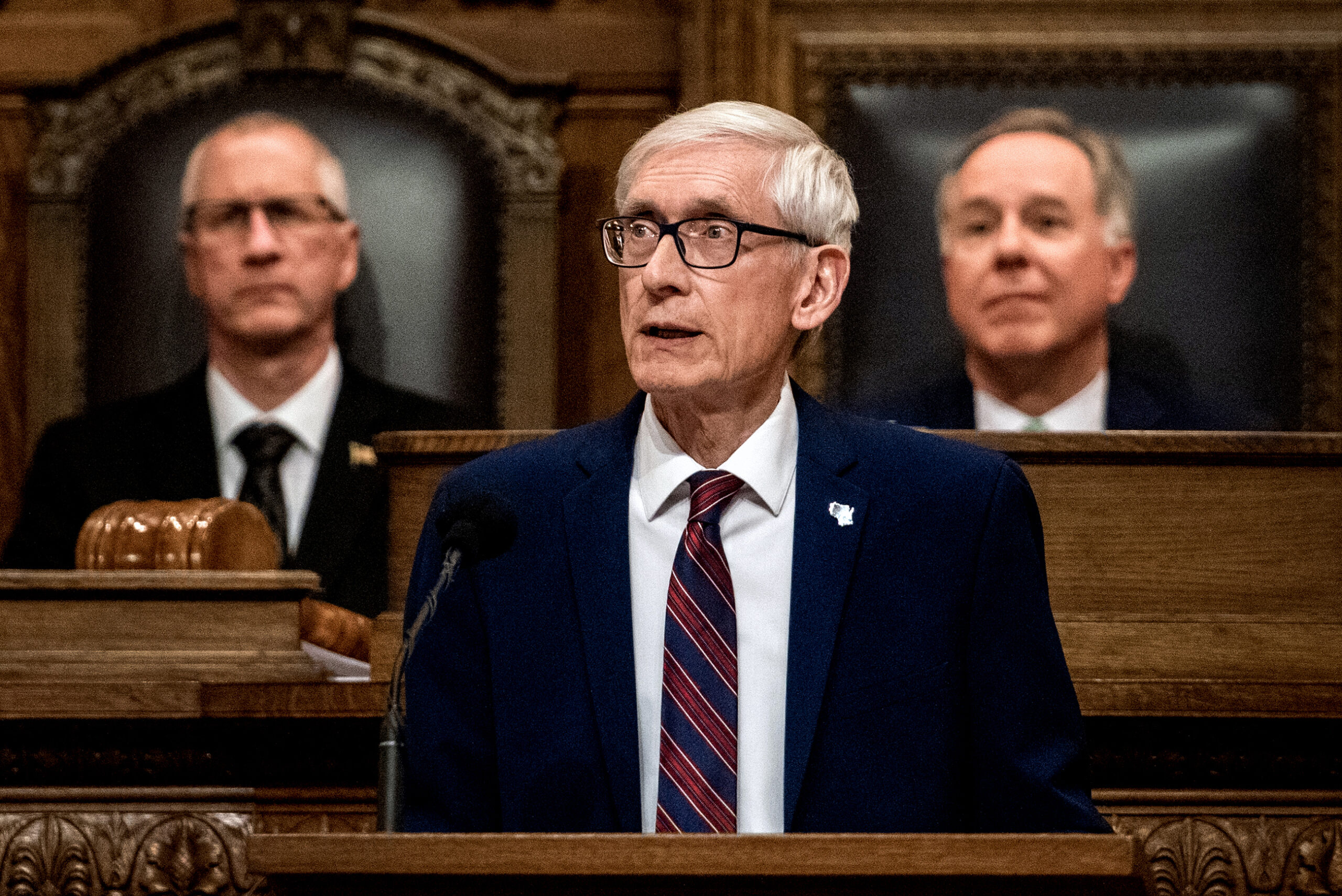The Wisconsin Supreme Court is considering the legality of a new approach used by some municipalities to boost road revenues while bypassing state limits on property tax increases. Local supporters of Transportation Utility Fees say they’re one of few ways to keep up with rising costs, while GOP lawmakers and conservative groups say they violate the state Constitution.
On Monday, the state’s high court heard oral arguments in a lawsuit against the Town of Buchanan that alleges its Transportation Utility Fee, or TUF, created in 2019 is actually a tax created to bypass state law restricting property tax increases beyond the value of new construction within a community.
The lawsuit was filed by Wisconsin Property Taxpayers Inc., a nonpartisan group that is represented in court by the conservative firm Wisconsin Institute for Law and Liberty.
Stay informed on the latest news
Sign up for WPR’s email newsletter.
Representing the town, Attorney Richard Carlson told the court a state statute dating back to 1915 authorizes towns, villages and cities to establish utility districts to raise property taxes for improvements including district highways, sewers, sidewalks and fire protection. He said the town’s utility district raised around $875,000, and the money was used to improve roads that directly benefit homeowners, who pay fees of $315 per year.
Some justices on the state’s Supreme Court seemed skeptical about the novel use of the 1915 statute. Carlson was asked why the town didn’t ask voters to raise property taxes for roads via a referendum vote. Carlson said a referendum would have required a permanent tax increase, which town leaders wanted to avoid.
He said the fee has “legal roots” similar to what are called special assessments, which are not subject to the state’s levy limit law. Those are paid by homeowners when a street or sidewalk is improved adjacent to their property.
Carlson said it cost the town $3.6 million to rebuild one mile of a major road in the town. Even with a $2 million federal grant, property owners along the route were assessed costs of $3,000 each. The remaining funds came from TUF revenues.
“This whole thing, this $875,000 that was raised by the town of Buchanan for this tax on property could have been raised by a special assessment,” Carlson said. “And it would not be counted against the levy limit.”
WILL Attorney Lucas Vebber told the court Buchanan’s TUF, and others used by local governments in Wisconsin, are illegal for multiple reasons. He said the 1915 law wasn’t intended to allow local governments to create a utility district covering an entire municipality.
“Second, even if the TUF were a property tax, it would violate statutory levy limits,” Vebber said. “And third, if it were a property tax, it would also violate the constitutional requirement of uniformity.”
Vebber said that’s because the town charges different fees to owners of single family and non-residential properties.
“The towns and local governments can’t simply create another entity to grab taxes as a means of evading their levy limits,” Vebber said. “And for that reason, I think that the services argument is kind of immaterial here. It’s a property tax.”
Buchanan’s utility fee has already been struck down by an Outagamie County Circuit Court Judge. The town appealed that decision and WILL successfully petitioned to bypass the state appeals court and bring it directly to the Supreme Court.
In his rebuttal, Carlson urged justices to remember that state lawmakers created the utility district legislation for a reason.
“Could the legislature be that stupid to adopt this thing and have this litany of defects as outlined by the Wisconsin Property Taxpayers, Inc.?” Carlson said. “I don’t think so.”
A July 2022 analysis by the nonpartisan Wisconsin Policy Forum found that 13 municipalities are considering or have adopted transportation utility fees as one of few options for raising tax revenues not restricted by the state’s levy limit.
Republican lawmakers have taken notice of the trend. A GOP bill introduced in Feb. 2022 sought to punish local governments that enact the transportation fees by forcing them to lower the amount they can collect from property taxes by however much they raise from their respective TUF. The bill failed to pass and hasn’t been reintroduced.
As the Supreme Court considers Buchanan’s TUF, local government leaders are hopeful they may see a new source of funding that could boost spending on roads and other services. Both Republican lawmakers and Democratic Gov. Tony Evers have discussed sending 20 percent of state sales tax revenues back to cities, towns, villages and counties.
The news has been welcomed by the Wisconsin Towns Association and the League of Wisconsin Municipalities, which have long argued Wisconsin’s system of sharing revenues between the state and local governments is broken.
Wisconsin Public Radio, © Copyright 2025, Board of Regents of the University of Wisconsin System and Wisconsin Educational Communications Board.





